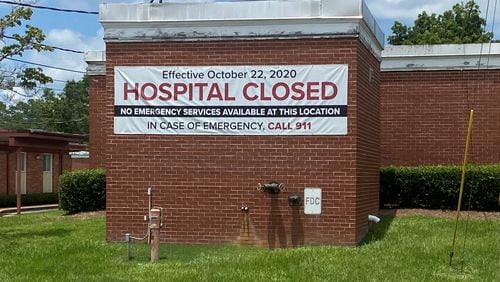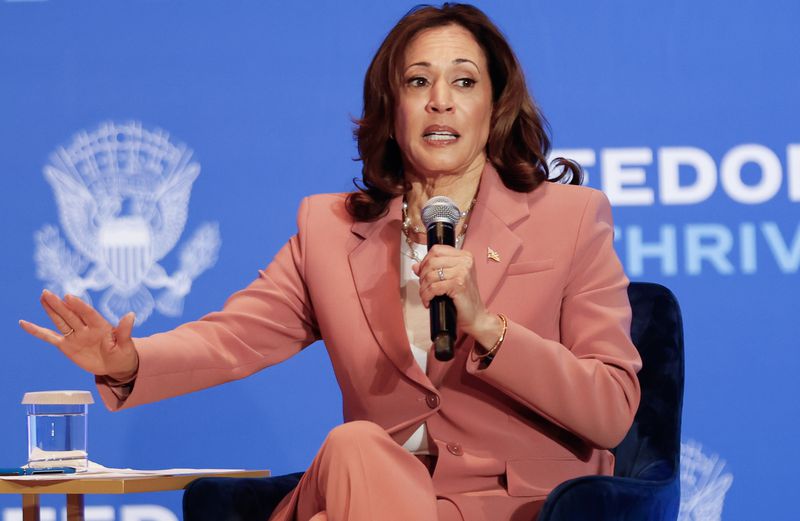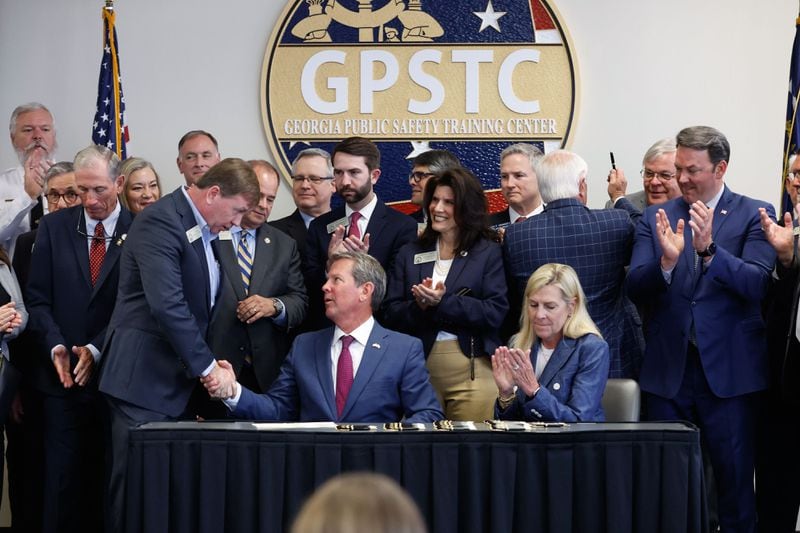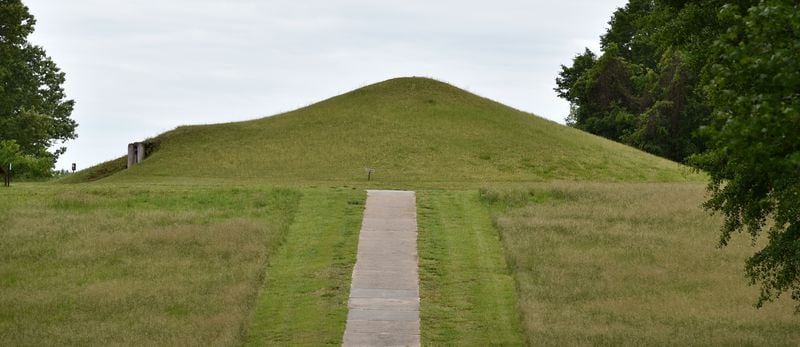Access to care and health insurance cited as factors for preventable deaths
People in rural Georgia are more likely to die early than their urban counterparts, according to a multiyear study by the Atlanta-based U.S. Centers for Disease Control and Prevention.
The finding is part of a larger nationwide trend, although the worst outcomes were in the Southeast, said the authors of the study the CDC releases about every five years.
The study looked at deaths that occurred at ages younger than the national average and that were probably preventable.
For example, people in rural Georgia are nearly five times as likely to die preventable, early deaths due to cancer and twice as likely to die from chronic lower respiratory disease than those living in urban areas.
Structural problems, such as lack of doctors, access to care, health insurance and broadband internet service, are part of the problem, said Macarena Garcia, the CDC’s senior health scientist at its Office of Rural Health.
For example, data from the Georgia Board of Health Care Workforce showed that, as of 2020, nine of the state’s 159 counties have no doctor at all.
Rural Georgians are less likely to have job-based health insurance, according to the nonprofit Georgians for a Healthy Future. And uninsured poor adults are not automatically covered by Medicaid in Georgia, one of 10 states that have not fully expanded Medicaid under the Affordable Care Act.
That lack of coverage, Garcia said, “absolutely (is) one of the predictors and one of the bigger problems.”
More Democrats appear to move into Georgia than Republicans
Georgia has seen a net gain of about 30,000 voters over the past three years, according to an analysis by The Atlanta Journal-Constitution.
Roughly two out of every three of those new voters, or about 19,500, fall in the category of likely Democrats. About 6,000 of the new voters are likely Republicans. The remainder were not registered with a political party in their prior state or they belonged to third parties.
Democrat Joe Biden won Georgia by just 11,779 votes in 2020.
Bernard Fraga, a political scientist at Emory University, said voters moving into Georgia mirror a national trend of people leaving more Democratic-leaning states such as California and New York due to high costs of living, so he’s not surprised that the new Georgia voters are “disproportionately Democratic.”
The AJC analysis of voter registration data from L2, a political data vendor, found that the three states that sent the most voters to Georgia were Florida, California and New York in that order. While voters from Florida are evenly split between Democrats and Republicans, those from California and New York are more Democratic.
DEA proposal could clear way for state pharmacies to sell medical marijuana
Georgia could increase access to its registered medical marijuana patients by allowing pharmacies to sell cannabis if the federal government goes through a plan to reclassify the drug.
Marijuana would remain illegal for recreational use in Georgia, but a U.S. Drug Enforcement Administration proposal could expand the state’s medical marijuana program, which currently serves about 18,000 registered patients through nine dispensaries across the state.
Georgia had planned to authorize independent pharmacies to dispense the drug, but the DEA put the kibosh on that plan last year when it warned that doing so could violate federal law.
If the DEA’s proposal is approved, marijuana would move from its current classification as a Schedule I drug, which covers substances with no accepted medical use and a high potential for abuse, such as heroin and LSD. Instead, marijuana would become a Schedule III drug, alongside ketamine, anabolic steroids and some acetaminophen-codeine combinations. The process could take years.
Georgia law allows registered patients to receive medical marijuana with approval from a physician to treat severe illnesses such as seizures, terminal cancers, Parkinson’s disease and post-traumatic stress disorder. The oil can have no more than 5% THC, the compound that gives users a high.
Credit: Natrice Miller/AJC
Credit: Natrice Miller/AJC
Harris focuses on Black opportunities during stop in Atlanta
Vice President Kamala Harris made it an even dozen this past week when she traveled to Atlanta, her 12th visit to Georgia since she took office.
The tour was carefully orchestrated to bring new attention to Democratic efforts to mobilize Black voters, the party’s most loyal group of supporters and a key cog in President Joe Biden’s reelection bid.
Some surveys have shown Biden’s support in the African-American community slipping, although Emory University political scientist Alan Abramowitz said recent exit polling and turnout trends left him skeptical that Republicans are “on the verge of a big breakthrough with Black voters.”
During her stop, Harris touched on Biden administration programs designed with the Black community in mind, including a promise to increase federal contracts for minority-owned businesses by 50%. That initiative, she said, would boost disadvantaged firms that have long been left out of lucrative work.
What Harris did not discuss were ongoing protests over Biden’s handling of the Israel-Hamas war, and she caught flak from some Republicans for that silence.
“While antisemitism and calls for the eradication of Jewish people are spewed by radical leftists across the country,” Lt. Gov. Burt Jones said, “Harris refuses to condemn these vicious acts.”
Immigration measure among bills Kemp signs into law
Sheriffs in Georgia will now be required to cooperate with federal immigration officials when someone in their custody is suspected of being in the country without permission.
Otherwise, their local governments could lose state funding or state-administered federal funding.
Gov. Brian Kemp this past week signed House Bill 1105, requiring jailers to hold any suspect who is believed to be in the country without legal permission if that person is wanted by the U.S. Immigration and Customs Enforcement agency.
Other bills the governor signed this week include:
- Senate Bill 63, which adds dozens of new offenses, such as a second trespassing offense or failure to appear in court for a traffic citation, that would require cash bail to be released from jail.
- Senate Bill 420, which restricts someone who is not a U.S. citizen or legal resident and who is also acting as an agent of a foreign adversary and who hasn’t lived in the country for a year from buying agricultural land within a 10-mile radius of a military base.
- Senate Bill 465, which allows authorities to charge anyone with manslaughter if they have sold or manufactured fentanyl that results in a fatal overdose.
Credit: Arvin Temkar/AJC
Credit: Arvin Temkar/AJC
Vogtle expansion finished, seven years late, way above original cost estimate
Now that its fourth nuclear reactor is online, the expansion of Plant Vogtle is complete — only about seven years behind schedule and, with a final price tag in the area of $35 billion, roughly 150% over the original cost estimate.
The project adding two reactors, known as Unit 3 and Unit 4, makes Plant Vogtle the largest generator of carbon-free electricity in the nation, Georgia Power says.
Combined, the two units — the first new commercial reactors built from scratch in the U.S. in more than three decades — will produce enough electricity to power 1 million homes.
Georgia Power owns the largest share of the Vogtle expansion at 45.7%, followed by Oglethorpe Power (30%), the Municipal Electric Authority of Georgia (22.7%) and Dalton Utilities (1.6%).
Late last year, state regulators voted to approve a deal to pass $7.56 billion of Vogtle’s construction costs on to Georgia Power’s ratepayers. The utility and its parent, Southern Co., will absorb the remaining $2.63 billion of the project’s construction costs.
As a result, the average residential customer using 1,000 kilowatt-hours of electricity a month will see a cumulative increase of $14.38 in their monthly bills.
Fulton reprimanded over initial miscount of votes in 2022 primary
The State Election Board reprimanded Fulton County after its election workers initially failed to count 1,326 votes cast in the 2022 primary.
Votes from seven memory cards, which store votes from ballot scanning machines, weren’t recorded on election night, according to an investigation report that The Atlanta Journal-Constitution obtained under the Georgia Open Records Act.
Either an election worker didn’t click on the correct box to load results, memory cards were removed from computers prematurely, or there was an unknown technical error.
The discrepancy didn’t change the outcome of any races, and the county recertified the election in June 2022.
Credit: proudlymadeingeorgia.com
Credit: proudlymadeingeorgia.com
Rivian online campaign stresses commitment to Georgia
Georgia gets serious screen time in a new promotional online campaign by Rivian, even though the electric vehicle maker pushed the pause button in March on plans to build a $5 billion factory an hour east of Atlanta.
“Proudly Made in Georgia” features plenty of scenes from the Peach State, including an electric SUV traveling past Atlanta’s Fox Theater.
Rivian, which is in line for $1.5 billion in local and state incentives, revealed plans to build a factory near Rutledge in December 2021. It has promised to employ 7,500 workers at the factory by 2030.
But what would be the state’s second-largest economic development project has experienced multiple delays and setbacks. When the automaker announced the pause on building, some state politicians worried that Rivian was abandoning Georgia.
Rivian says the campaign proves that’s not so.
“We launched Proudly Made in Georgia to further illustrate Rivian’s commitment to the Peach State,” Rivian spokesman Peebles Squire said in a statement.
Credit: Brant Sanderlin/AJC
Credit: Brant Sanderlin/AJC
Congressional lawmakers push for Georgia national park
Nearly every member of Georgia’s congressional delegation has signed on to a measure that would turn the ancient Ocmulgee Mounds site in Middle Georgia into the state’s first national park and preserve.
U.S. Sens. Jon Ossoff and Raphael Warnock and U.S. Reps. Sanford Bishop and Austin Scott are the lead sponsors of the measure that would more than double the footprint of the roughly 2,800-acre Ocmulgee Mounds National Historic Park.
The only member of the delegation who did not join in the effort was U.S. Rep. Andrew Clyde.
The next steps will test the clout of Georgia’s delegation. The National Park Service last year released a study showing that a broader plan for parkland stretching from Macon to Hawkinsville is suitable for federal protection but not feasible because of several private and state-owned lots along the path.
It recommends forging a greater partnership with the Muscogee Creek Nation to preserve a smaller area along the Ocmulgee River as a next phase.
About the Author














